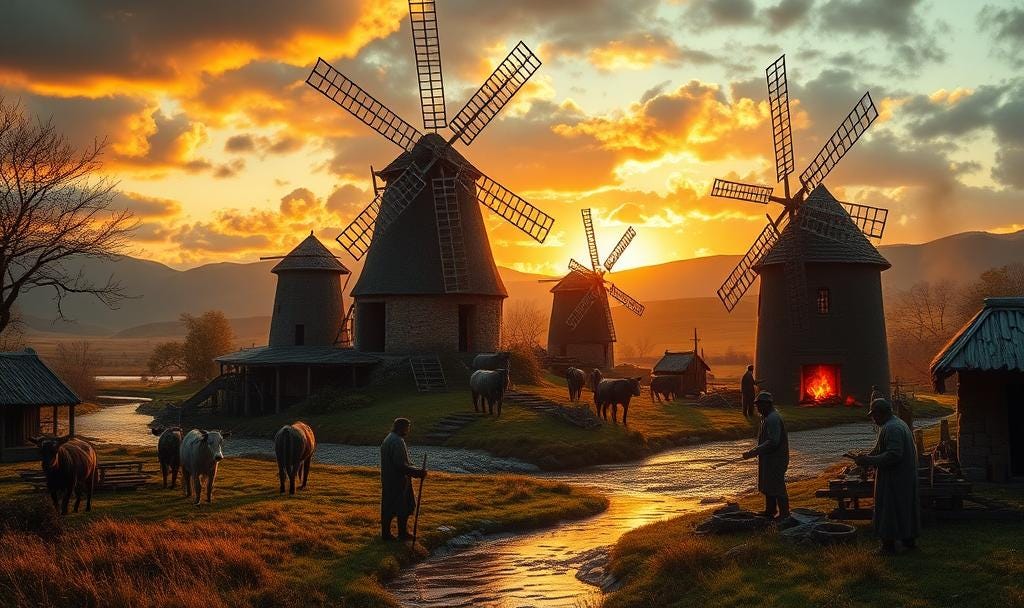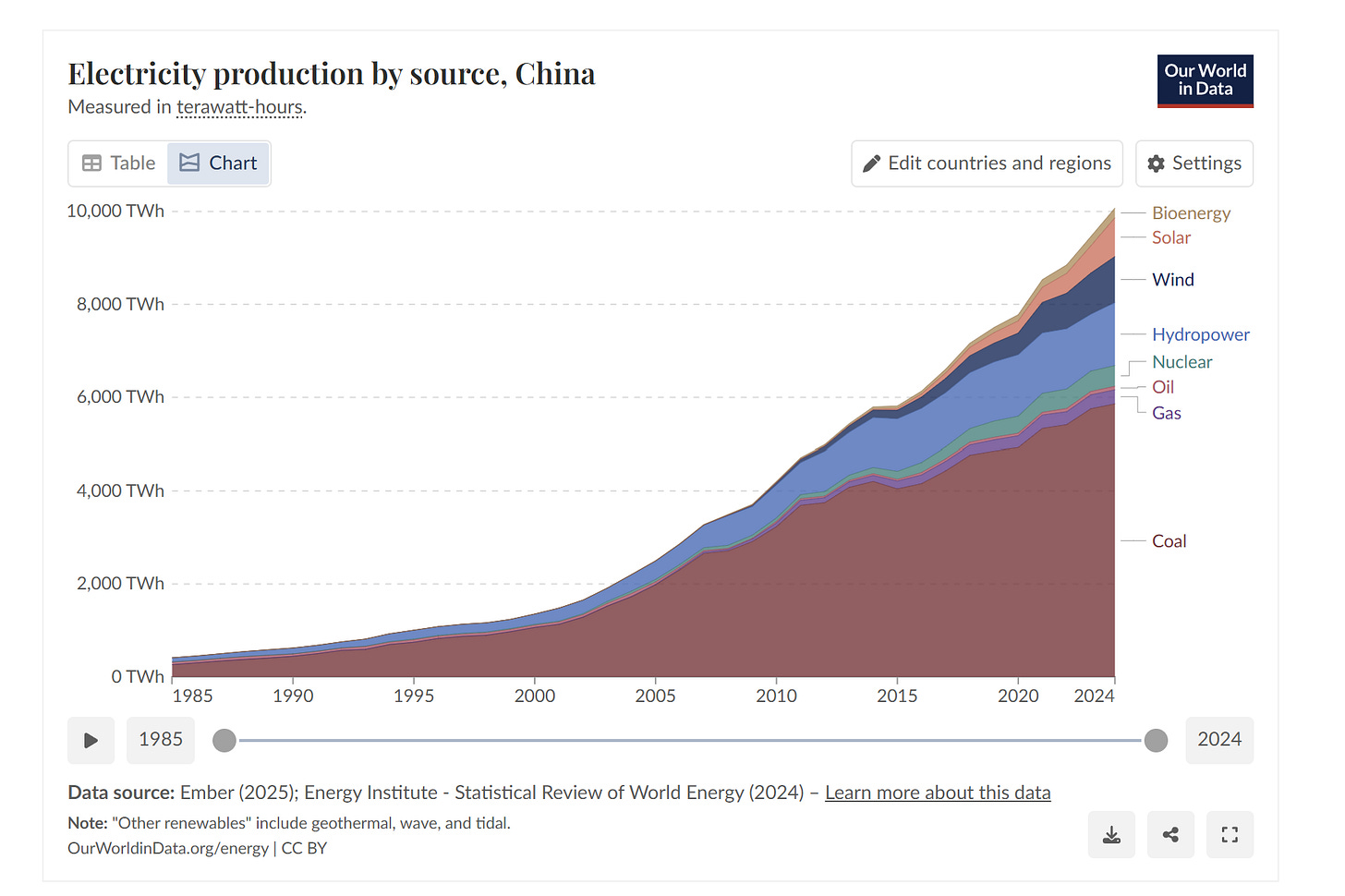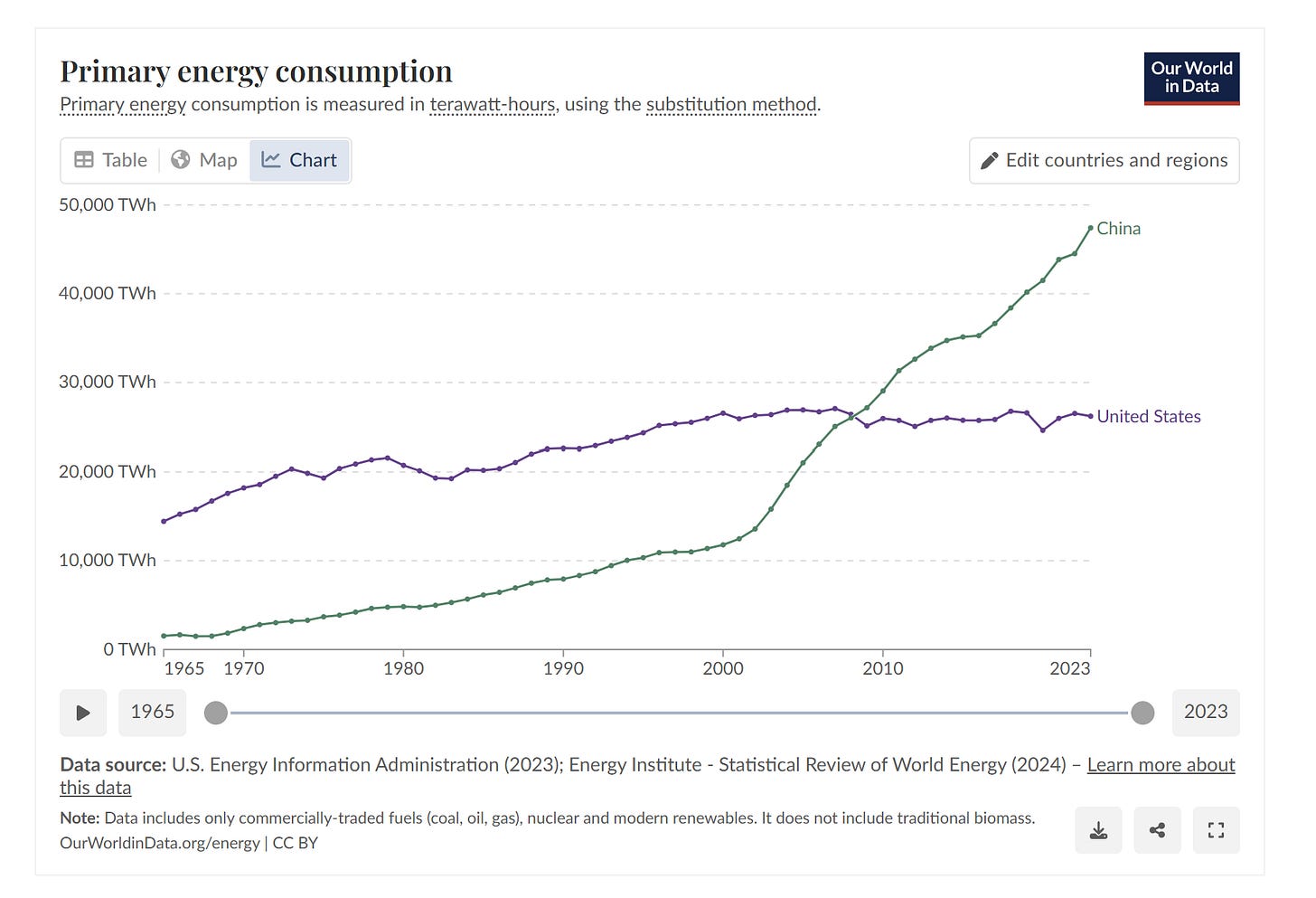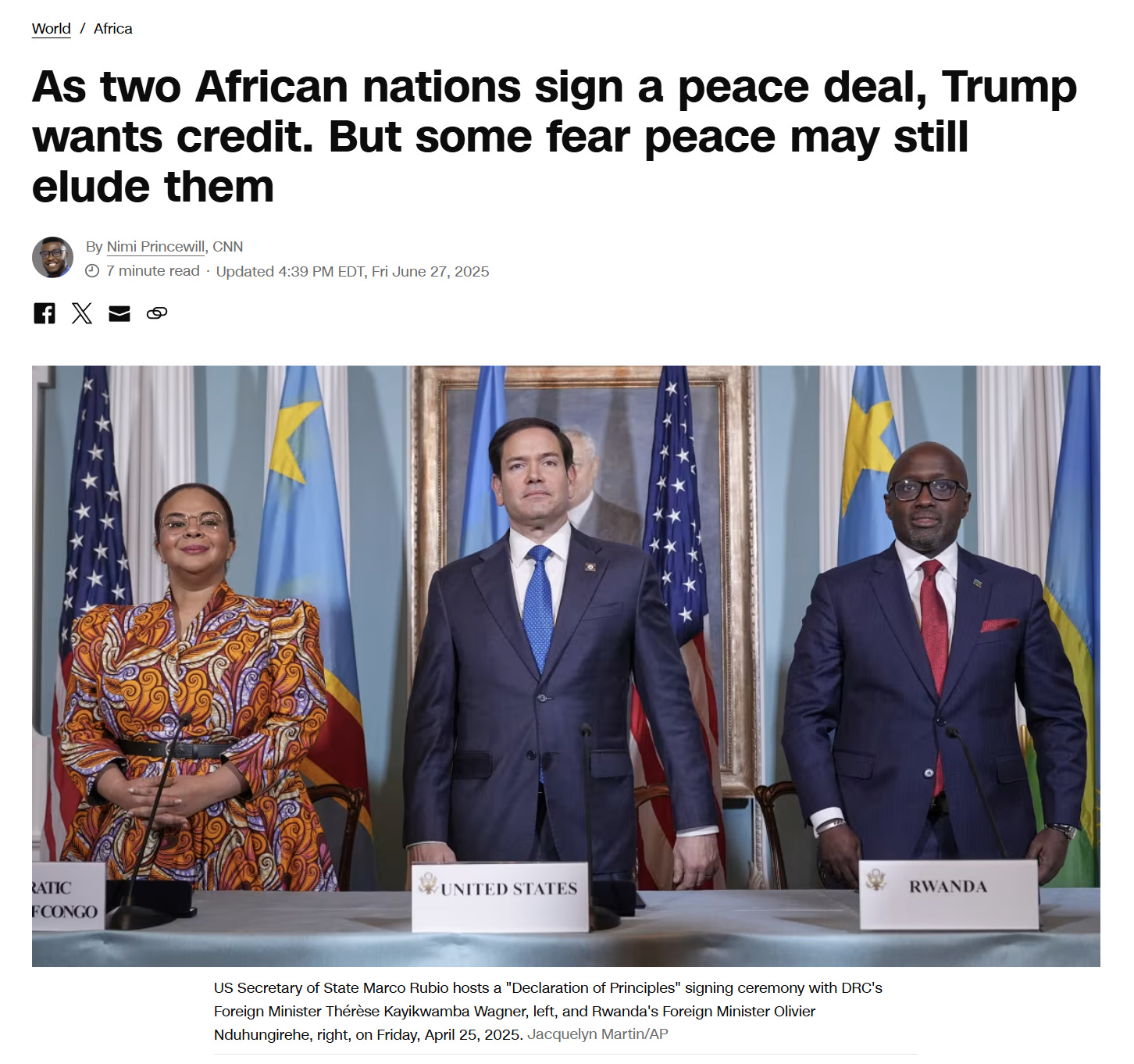“What's the point of setting unattainable goals? People call it ambition. I call it delusion." - Vaclav Smil
The Foundation of Civilization
Humans have always relied on existing energy sources—wind, water, animal muscle, and their own physical strength—to live, find food, and somehow survive each day. Wind for sailing, water for flour mills, animals for agriculture, and human muscle for construction, hunting, and toolmaking. The implication is clear: without harnessing one form of energy or another, humans couldn't survive for long.
Over the years, people discovered uses for various natural resources to channel energy more effectively, such as burning wood and coal. Wood enriched the way humanity cooked food and heated homes, smelted metals, and provided the ability to build and produce bricks for construction, transforming small villages into cities. In fact, the exploitation of wood enabled the Industrial Revolution, steam ships, and the railroads that conquered America and connected Europe to the Middle East. When the trees ran out, the British turned to coal, which powered the British Empire worldwide and transformed a small island into the center of the world.

Here we find the connection between energy development and innovation. As humans became better at exploring the wonders of technology and innovation, boundaries were broken. In the early 20th century, oil discoveries in the US and Middle East gave America the hammers to encircle the world, become the emerging global superpower surpassing the European powers, and put the final nail in the coffin of centuries of European dominance. Giant industries were established in the US—automobiles, ships, aircraft, heavy machinery, and of course the entire world of petrochemical byproducts we enjoy in thousands of products surrounding us: sneakers, records, furniture, food packaging, medicines, and more.
If you've made it this far in reading, the message is that energy created modern society. Instead of going out in the morning to work in one field or another, exploiting animals and harnessing the human mind for the benefit of humanity and society, we would all be moving between uncertainty and despair over food, water, and shelter. Living in poverty and destitution. What kind of world would it be without a good coffee machine?
The Great American Energy Mistake
Decision-makers in America chose to sideline the foundations of a prosperous society in favor of waves of fear-mongering about humanity's destruction within a few short years. Various administrations chose to chart massive investments in green energy like solar panels and wind turbines, showing investors worldwide that they'd better reduce investments in oil, coal, gas, and nuclear development. How many investors would prefer to channel their money into an industry that the American administration painted as an industry with no future?

On the other side of the world, the Chinese quickly and efficiently internalized the implications of developing an energy economy for the local economy and accelerated developments in the field for three decades. From connecting vital factories to the electrical grid to supplying electricity to all residents of the giant country. The Communist Party's success is the greatest in recent decades among the successes of any political body... Of course, there's another social price to pay... but bringing tens of millions of people out of poverty and destitution to a higher standard of living is a rare social phenomenon.
In Africa, for example, more than half a billion people today live without electricity, compared to about 70 million people in the Far East, and the gap between the African and Asian economies is enormous. Take China, Japan, South Korea, Singapore, Malaysia, Taiwan, Indonesia, and India, and you get a prosperous and successful economic bloc thanks to the efficient energy economy development by decision-makers compared to their counterparts in Africa.
China's Master Strategy
The Chinese internalized this lesson well. While they gained access to quarries and natural resources in South America and Africa and control the entire production and supply chain of green energy products, China is a massive coal consumer for electricity supply to local production.
If we assume a game where we tend to divide the world into good and evil and look at it from a more relevant perspective, the Chinese learned that the West in general is interested in making an energy transition from fossil fuels like coal and oil to energy supply based on sun and wind. Therefore, the Chinese read the map correctly and set out to provide jobs and income for the state coffers, building the world's largest infrastructure for the green energy sector... and succeeded greatly. It doesn't matter that the West acts and forces residents to forcibly transition to solar energy—the Chinese understood that for every drop the West gives up, others will drink thirstily...
China today has a diverse and complex electricity infrastructure with the world's most advanced technologies, from the networks we all know, through hydroelectric power supply, to highly advanced nuclear reactors that can be installed in the desert far from water sources like traditional reactors worldwide. The assumption that you can develop advanced and sophisticated industry in the US and subsidize energy supply from unstable sources like solar panels and wind turbines falls somewhere between science fiction and delusion. The gaps China is opening against the US in various fields stem from the Communist Party's massive investment in the energy economy. From developing the rare metals field, access to quarries and natural resources worldwide, to massive investments in physics like nuclear development.
Industry in China has become an ecosystem that integrates overlapping technologies, enabling companies to move, switch, and nurture different and numerous products at low cost and amazing efficiency. This is a monster that enables operation on multiple fronts like sensors, cameras, smartphones, electric vehicles, robotics, batteries, drones, autonomous vehicles, artificial intelligence, processors, and more, because the fusion of these technologies relies on cheap energy supply on a massive scale.
Let's continue our journey... we're in China, right?
The Military-Industrial Complex
China's large energy consumption has made it one of the world's leading countries in oil production, despite importing the vast majority of it. The global expression is that China has cheap energy independence for its industry. It's not dependent on the mercies of the US or Europe or currency exchange rate changes, and moreover, because it imports a lot, it strengthens its currency's presence in the global market.
Because energy security gives a country the ability to develop a strong economy, China has advanced greatly in its military context. The steel industry, one of the central elements of the military industry (for tanks, warships, aircraft, and other heavy weapons), depends on the availability of abundant energy at convenient prices. China, through investments in a broad energy supply (coal, oil, gas, and renewable energy), secured a stable and cheap supply of electricity and raw materials needed to operate steel factories on a massive scale.
When wars and sanctions hit the global supply of iron and steel—for example, following conflicts in the Black Sea or following Western restrictions on Russia—demand for Chinese steel in the world increased, strengthening China's bargaining power in the field. Investments in energy infrastructure enabled China to produce steel on unprecedented scales and accumulate large inventories, ensuring immediate availability of military raw materials in times of crisis.
America's Energy Awakening
If we return to the US, for many years regulations and powerful environmental protection bodies led the strongest suppression of investments in energy fields like coal, oil, gas, and nuclear, and directed massive funds toward green industries. However, you don't build an economy with solar panels and wind turbines, and certainly not a strong industry. Solar panels and wind turbines are mainly for electricity production, and electricity is a very small part of total energy—something like 20 percent on average.

Energy Secretary in the Trump administration, Chris Wright, described US energy policy as focused on accelerating oil and gas production and removing regulatory barriers along the entire supply chain. He emphasized that encouraging drilling alone is not enough, but extensive gas infrastructure and transmission must be built, investments encouraged, and rapid export enabled, thereby realizing the full potential of American energy fields. Wright emphasized that increasing production and reducing regulation are necessary tools for economic growth, strengthening the domestic energy industry, and helping maintain America's competitive advantage in global energy markets.
The New Great Game in Africa
If you've recently heard about a peace agreement or ceasefire between Rwanda and Congo, it was brokered by the Trump administration. Why would the US mediate between two African countries at war? Isn't this supposed to be an isolationist American administration? Well, as I mentioned a few paragraphs ago—the Chinese built an amazing industry through access to both natural resources and quarries in the field and industrialization of the final product. Therefore, the Americans are changing direction and acting accordingly... and thus through the ceasefire agreement between the two countries, the US will gain access to vital minerals.
Documentation submitted under the US Foreign Agents Registration Act reveals that several countries have signed multiple contracts, including the Democratic Republic of Congo (DRC), which has suffered for years from mass displacement and conflict over its mineral wealth. The Democratic Republic of Congo (DRC) is prepared to sign a mineral deal with the US supporting Rwanda-backed rebels, which will provide American companies access to lithium, cobalt, and coltan. The Democratic Republic of Congo—formerly one of USAID's top ten aid recipients—signed contracts worth $1.2 million with lobbyists Ballard Partners.
Pakistan's government, a country struggling with extreme poverty but extremely rich in quarries, signed two contracts with Trump-linked lobbyists worth $450,000 per month. The implication is that the American aircraft carrier is recalculating its route regarding energy policy.
The Tragic Reality
Recognizing the reality that Western leaders gave up so much geopolitical power to their enemies in the name of climate change, far from being ready to go to war with China, the US and its allies must choose a new path regarding energy policy, develop their own energy economy, and rebuild themselves. It's ridiculously tragic to see the glory of industries in Europe and America lagging behind... and providing dictatorships around the world with tremendous political power.
The time for energy realism has arrived. The question isn't whether America will wake up to this reality—it's whether it will wake up in time.
If you enjoyed this post, you're welcome to like and share it with others. When you do this, you contribute to the blog's publicity and give my investment a great incentive to continue writing for you.









Right on!
https://www.aljazeera.com/news/2025/7/9/us-sanctions-un-expert-albanese-over-israel-criticism